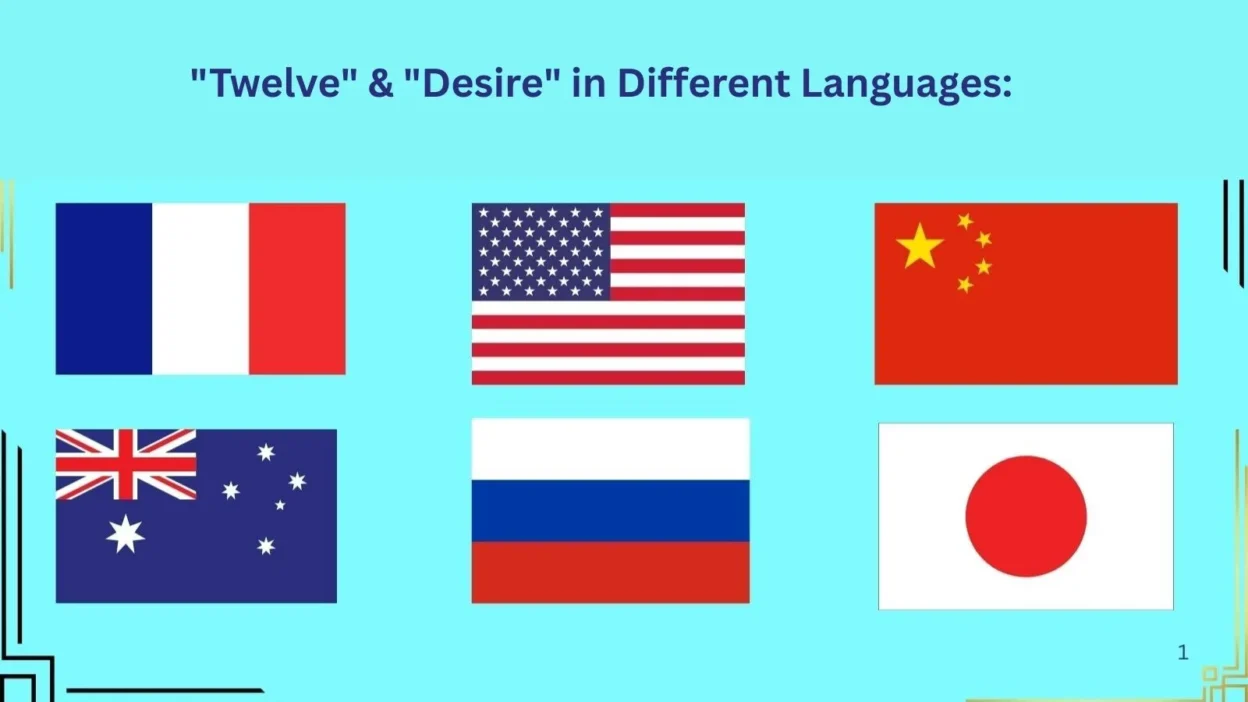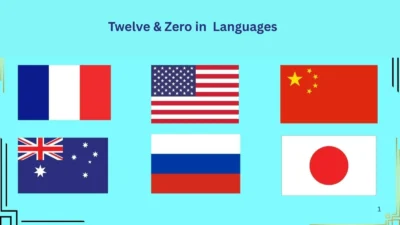In today’s globalized world, language plays a key role in bridging human connection.
People often search for the meanings of simple yet powerful words like “twelve” and “desire” in different languages — whether for travel, education, writing, or personal curiosity.
These words may seem ordinary, but they carry deep meaning across cultures and can enrich communication when used properly.
If you’ve landed here searching for “twelve in different languages” or “desire in different languages,” your problem is about to be solved. This blog will help you:
- Understand the core meanings of both words.
- Learn how to say and use them in over 20 languages.
- Use them confidently in conversations, writing, and cross-cultural contexts.
Why You Might Be Searching These Words
Twelve” is a number with symbolic and practical significance. You might need it for:
- Learning a new language (counting, math, dates).
- Translating content or dialogues.
- Understanding religious or historical references (12 months, 12 disciples, 12 zodiac signs).
🔥 “Desire” is emotionally and culturally rich. You might be exploring it for:
- Writing poetry or literature.
- Expressing emotions in another language.
- Understanding romantic or motivational themes across cultures.
Part 1: “Twelve” in Different Languages
| Language | Word for “Twelve” | Pronunciation |
| English | Twelve | /twɛlv/ |
| Spanish | Doce | /ˈdo.se/ |
| French | Douze | /duz/ |
| German | Zwölf | /tsvœlf/ |
| Italian | Dodici | /ˈdɔ.di.tʃi/ |
| Portuguese | Doze | /ˈdo.zi/ |
| Russian | Двенадцать (Dvenadtsat’) | /dvʲɪˈnat͡sətʲ/ |
| Arabic | اثنا عشر (Ithnā ‘ashar) | /ʔɪθˈnaː.ʕaʃar/ |
| Hindi | बारह (Baaraah) | /ˈbaː.ɾəɦ/ |
| Japanese | 十二 (Jūni) | /dʑɯː.ni/ |
| Chinese (Mandarin) | 十二 (Shí’èr) | /ʂʐ̩˧˥ ɚ˥˩/ |
| Korean | 열둘 (Yeoldul) | /jʌl.tul/ |
| Turkish | On iki | /on.i.ki/ |
| Greek | Δώδεκα (Dódeka) | /ˈðo.ðe.ka/ |
| Swahili | Kumi na mbili | /ku.mi na m.bi.li/ |
🔹 Example Usage:
- “There are twelve months in a year.”
→ French: Il y a douze mois dans une année.
Desire” in Different Languages
| Language | Word for “Desire” | Notes/Context |
| English | Desire | Strong wish or craving |
| Spanish | Deseo | Used romantically or generally |
| French | Désir | Often poetic or romantic |
| German | Verlangen | Can be intense, even physical |
| Italian | Desiderio | Rooted in Latin “desiderare” |
| Portuguese | Desejo | Very expressive word |
| Russian | Желание (Zhelaniye) | Covers both wants and cravings |
| Arabic | رغبة (Raghba) | Strong will or yearning |
| Hindi | इच्छा (Ichchha) | Will or wish, also spiritual |
| Japanese | 欲望 (Yokubō) | Often used in emotional or dramatic context |
| Chinese (Mandarin) | 欲望 (Yùwàng) | Deep desire, sometimes ambition |
| Korean | 욕망 (Yokmang) | Associated with ambition or passion |
| Turkish | Arzu | Romantic or emotional undertone |
| Greek | Επιθυμία (Epithymía) | Deep longing |
| Swahili | Tamaa | Desire, often longing or temptation |
Example Usage:
- “His desire to succeed was unshakable.”
→ Spanish: Su deseo de tener éxito era inquebrantable.
Cultural Tip
Words like “desire” can carry very different emotional weight across cultures. In some languages, it’s romantic. In others, it might imply ambition, temptation, or even taboo. Always consider the context when using emotionally charged words.
Conclusion
Whether you’re counting in another language or expressing deep feelings, understanding how words like “twelve” and “desire” are used around the world can help you connect more authentically. Now that you know their translations and meanings in many languages, you can:
- Enrich your writing and conversation.
- Appreciate cultural nuance in language.
- Build confidence in using these words anywhere in the world.
So next time you’re learning a language or crafting a message, remember: even simple words like “twelve” and “desire” can open doors to deeper understanding.



